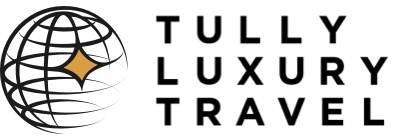TRAVEL MARKET REPORT: Agents Slam New Survey about How Affluent Consumers Book Travel with Mary Jean Tully
By Doug Gollan | 11-09-2015 |
A new survey purporting to show how affluent consumers book travel is coming under fire from travel agents who say the question asking about their usage is flawed.
The research by was sponsored by Martini Media, a sales broker that sells ad space for websites targeting affluent consumer audiences, and was conducted by Ipsos Connect.
The survey had 875 respondents and was released as The Martini Report, Volume 4: The Affluent Traveler. It supposedly details the online behavior of three key segments of the affluent market: the Hyper Affluent, 3% of Americans with at least $250,000 in annual household income; the Mass Affluent, one quarter of the U.S. population, who fall in the $100,000-$249,000 income range; and the Emerging Affluent, aged 18-39, with household income in the $75,000-$249,000 range.
Data from the survey showed that online travel agencies (OTAs) and supplier websites are the dominant way that affluent households book travel. But experts said the question, “How do you book travel most often?” is flawed and doesn’t reflect the role travel agents play in serving well-to-do consumers.
For example, a respondent who booked online six trips for $150 between San Francisco and Los Angeles and two vacations for $25,000 through a traditional travel agent would have been forced to check off the box for supplier websites or OTAs based on how the question was worded.
“While some affluent clients might prefer to book their short domestic flights point A to B online rather than waste the time of their luxury travel advisor, it by no means is reflective of the value they place on their relationship with their trusted expert advisor,” said Stacy Small, CEO of Elite Travel International, a Los Angeles-based travel agency with a large customer base of the Silicon Valley tech community. “My clients often tell me they don’t want to waste my time with quick low-dollar transactions, but they would never book a $50,000 honeymoon or $100,000 safari through an OTA. If you look at the per dollar transaction of the affluent traveler I’m confident that it would skew extremely heavily toward the use of a luxury travel advisor.”
“My business has never been better. I just finished my fiscal year Oct. 31, and it’s the best year I have ever had,” said Mary Jean Tully, founder and CEO of Tully Luxury Travel. “The survey does not show at all the true picture. As in every business it is all about relationships. You don’t have a relationship with a website. A great agent has a relationship with the general managers of hotels as an example, not to mention someone in every major city of the world that we can enhance their trip in unimaginable ways. “Do you think a website will get a wait list cleared or a special promotion? These are smart people. If they want a seamless trip they have a great agent.”
Tully noted that the majority of Affluent travelers “do not have the time to put it all together. Yes, a simple airline flight is easy. However the more the depth and complicated the trip, they want the advice of an agent, someone who has been there and can get them information that you don’t find on a site. Many clients have told us some of the nightmare stories. For instance you can book a great hotel online, but we will tell you if there is construction of a new condo going on next door where you cannot sleep in or enjoy your terrace.”
Still, though, Michael Holtz, CEO and founder of SmartFlyer, noted agents have to continually demonstrate they can do it better than online options. “Only agents that provide value have a future,” he said.
In positive news for travel advisors and suppliers, the Martini survey reported, when asked how affluent consumers would spend $5,000, 87% of respondents said they would use it to take a vacation rather than buy a watch or piece of jewelry.







